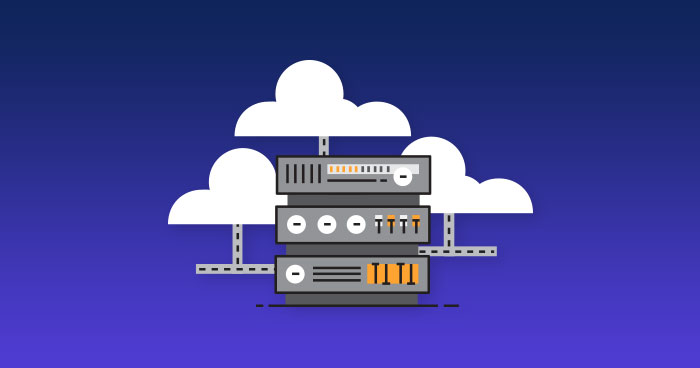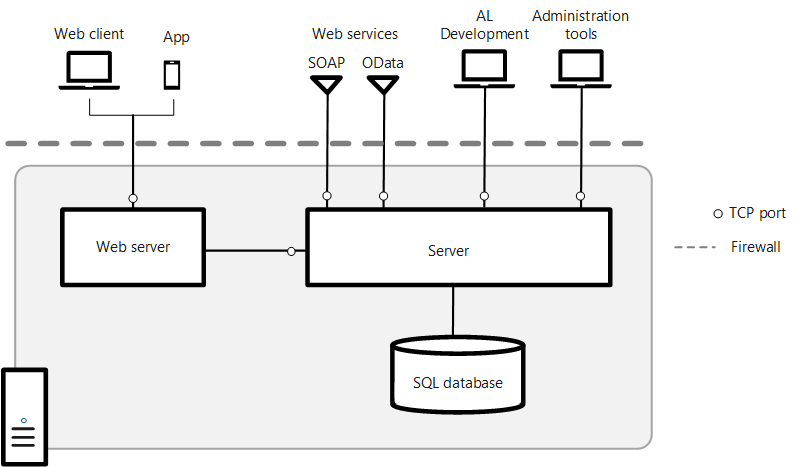
SSL is an acronym for Secure Sockets Layer. It's a cryptographic protocol which allows a server to encrypt information sent over the Internet. This protocol also protects against information being intercepted or altered by a third-party in the middle of an internet connection.
HTTP, or hypertext transfer protocol, is the standard protocol for communicating with browsers and servers in a network. It has been around since years and allows information to be communicated between a client and an end user. It does this by dividing the data packets into individual sections that are then transferred. But this can create a problem because hackers are able to sniff out data packets.
SSL protocol enables sensitive data such as credit cards numbers to be sent between a website server and a client. The information is encrypted so that only the computer of the recipient can decode it. This safeguards your data from being misused by third parties.

In order to implement the SSL protocol, web servers must create public key certificates. The certificate must be verified by a certification authority to ensure that it is reliable and valid. The web server will then display a green lock or padlock symbol in the browser address bar. This means that SSL is used.
You can use several different types of certificates to secure your website. Domain Validated (DV), Organization Validated(OV) and Extended Validation(EV) are the three main types. All three have slightly different functions, but all three require the exact same level of verification.
The DV certificate is the most basic type of certificate, which requires that the owner of the website proves they own the domain name. It does not verify ownership, so it's not suitable for the majority of sites. It is also the least expensive of the three options.
Organization Validated certifications are advanced and provide an increased level of security for businesses. Banks, card companies and entities that handle sensitive data usually require these certificates. They also require a business to prove their identity through a series of verification procedures and are considered more secure than DV certificates.

The price range is wide, so you are free to choose what works best for your organization. Other benefits include improved search engine ranking and visitor confidence.
SSL certificates can be used to help maintain the integrity and reliability of your website. SSL Certificates are a good tool to show customers, both current and future, that you care for their security and respect their privacy.
Websites collect lots of data. Therefore, it is essential that they protect private information about their users. This is especially important if they ask for credit card or password details from their customers. Keeping these details safe can make the difference between making or losing sales, and it's something that every website should be doing.
FAQ
What HTML and CSS are available to help me build my website?
Yes! If you've followed the steps, you should now be able create your website.
After you have learned how to structure a website, you will need to know HTML and CSS.
HTML stands as HyperText Markup Language. This is like writing a recipe. You'd list the ingredients, instructions, along with directions. HTML can also be used to inform a computer if certain parts of text should appear bold, underlined and italicized. It's the language of documents.
CSS stands for Cascading Style Sheets. Think of it like a style sheet for recipes. Instead of listing each ingredient or instruction, you will write down the general rules for font sizes and spacing.
HTML tells a browser how to format a webpage; CSS tells a browser how to do it.
Don't worry if you don't know the meaning of either one of these terms. Follow the tutorials and you will soon be creating beautiful websites.
Do I need a portfolio to get hired as a web designer?
Yes. When you are applying for a job as a web developer or designer, a portfolio is crucial. Portfolios should showcase examples of your skillsets and experience.
Portfolios usually include samples of past projects. These could be any project that showcases your talents. Include everything: mockups; wireframes; logos; brochures; websites and apps.
What Kinds Of Websites Should I Make?
This question is dependent on your goals. Your website should be able to sell products online. This will allow you to build a successful business. To do this, you will need to create a strong eCommerce website.
Blogs, portfolios and forums are all popular websites. Each of these requires different skills and tools. To set up a blog for instance, you'll need to learn about blogging platforms like Blogger and WordPress.
You will need to decide how to customize your website's look when you select a platform. You can find many free templates and themes for every platform.
After you have chosen a platform, it is time to add content. Pages can include images, videos, text and links.
You can publish your website online once you have launched it. Visitors can view your site online once it has been published.
Should I use WordPress, or a website builder
Start small to create a strong web presence. If you have enough time and resources, build a site. But if you don't have these resources yet, starting with a simple blog might be the best option. As you learn to develop and design websites, you can always add new features.
It is essential that you have a primary domain name before you can start your first website. This will provide a point to which you can publish content.
Are you a technical person who wants to design and build a site?
No. It doesn't matter what HTML or CSS you know. There are many tutorials available online that can teach both HTML or CSS.
How much does it cost to create an ecommerce site?
This depends on your platform and whether you hire a freelancer or go through a service provider. eCommerce sites typically start at around $1,000.
However, once you decide on a platform, you can expect to pay anywhere between $500 and $10,000.
Templates are usually not more expensive than $5,000, unless you have a specific purpose. This includes any customizations you may need to match your brand.
Statistics
- The average website user will read about 20% of the text on any given page, so it's crucial to entice them with an appropriate vibe. (websitebuilderexpert.com)
- Did you know videos can boost organic search traffic to your website by 157%? (wix.com)
- It's estimated that chatbots could reduce this by 30%. Gone are the days when chatbots were mere gimmicks – now, they're becoming ever more essential to customer-facing services. (websitebuilderexpert.com)
- Is your web design optimized for mobile? Over 50% of internet users browse websites using a mobile device. (wix.com)
- It's estimated that in 2022, over 2.14 billion people will purchase goods and services online. (wix.com)
External Links
How To
How do you choose between two CMS?
Two types of Content Management System are available. Web Designers typically use static HTML and dynamic CMS. WordPress is the most well-known CMS. But when you want to make your site look professional and well-organized, you should consider using Joomla! You can create any kind of website with Joomla!'s powerful open-source CMS. It's simple to install and configure. Joomla has thousands of pre-made templates and extensions that can be used to create your website. Joomla is free to download. Joomla is an excellent choice for your next project.
Joomla is a powerful tool to help you manage every aspect of your site. It features a drag & dropped editor, multiple template support as well as image manager, blog management, blog management, news feed and eCommerce. Joomla is a great choice for anyone looking to create a website quickly and without having to learn how to code.
Joomla supports all devices. You can easily create websites for multiple platforms with Joomla.
There are several reasons why people prefer Joomla over WordPress. There are many reasons people prefer Joomla over WordPress.
-
Joomla is Open Source Software
-
Easy to Install and Configure
-
Many thousands of pre-made templates and extensions
-
Free to Download and Use
-
All Devices Accepted
-
These powerful features are available
-
Excellent Support Community
-
Very Secure
-
Flexible
-
Highly customizable
-
Multi-Lingual
-
SEO friendly
-
Responsive
-
Social Media Integration
-
Mobile Optimized